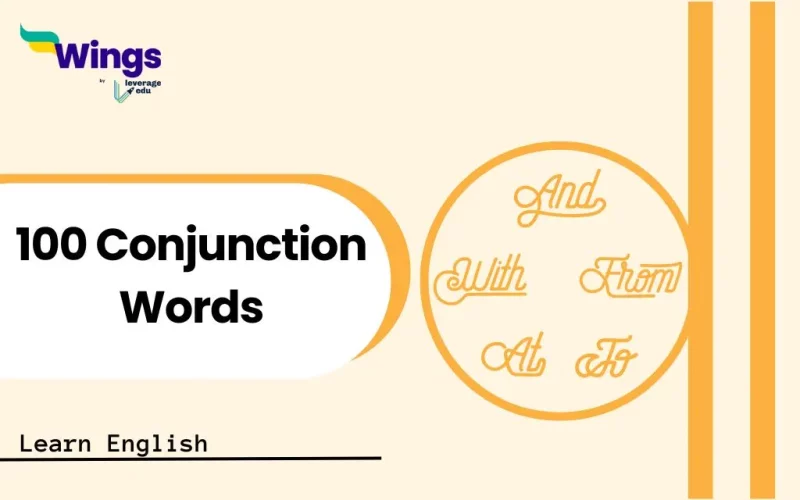100 conjunction words: Conjunctions are an essential tool for connecting words, clauses and phrases which help one to express their ideas, create informative sentences etc. Some of the most commonly used conjunctions include and, for, but, because, so that, even though, before and several others. This extensive list of conjunctions will not only broaden your English grammar but also help you unlock the full potential of your language abilities. To find out the complete list of 100 conjunctional words, continue reading this blog.
Learn All About Conjunctions
What are Conjunctions?
Conjunctions also known as connecting words, act as glue which is involved in connecting various parts of a sentence. As mentioned above, they are responsible for joining words, phrases, or even clauses. Take a look at the examples of conjunctions and how they are incorporated into a sentence.
Examples of Conjunction Words in Sentences:
- I went to bed early because I was tired.
- If you finish your homework, you can watch TV.
- Since you’re already here, would you like to stay for dinner?
- When the movie is over, we can go get dinner.
- Although it was raining, we decided to go for a walk.
Also Read: Types of Conjunction: Definition, Types, Examples, & Exercises PDF
List of 100 Conjunction Words in English – Download PDF
Having the right conjunction word is necessary as it helps in forming sentences. To help you, we have compiled a list of 100 conjunction words which will help you expand your English vocabulary and use them in your sentences.
Also Read: List of Conjunctions: Words, Rules, Uses in English Grammar
Related Reads on Conjunctions!
FAQs
A conjunction is a word that is used to connect words, clauses and phrases. Common examples of conjunctions include for, if, because, but and several others.
10 examples of conjunctions include so, for, since, and, but, because, still, while, as, though, although, even though and several others.
The 4 types of conjunctions include coordinating conjunctions, subordinating conjunctions, correlative conjunctions and conjunctive adverbs.
Coordinating conjunctions connect words, phrases, or clauses of equal importance. They are often used to join two independent clauses. Examples include “and,” “but,” “or,” “nor,” “for,” “yet,” and “so.”
Subordinating conjunctions introduce dependent clauses, which cannot stand alone as complete sentences. They show a relationship between the dependent clause and the independent clause. Examples include “because,” “although,” “if,” “when,” “while,” “since,” “before,” “after,” “as,” and “though.”
Correlative conjunctions are pairs of words that connect words, phrases, or clauses. Examples include “either…or,” “neither…nor,” “not only…but also,” “both…and,” and “whether…or.” Here’s an example: “Either you can go to the party tonight or you can stay home and finish your homework.”
Conjunctive adverbs are words that connect independent clauses. Unlike coordinating conjunctions, they can be placed at the beginning, middle, or end of a sentence. They often indicate a relationship between the two clauses, such as cause and effect, contrast, or addition. Examples include “however,” “therefore,” “nevertheless,” “consequently,” and “in addition.”
We hope this blog has provided you with all the necessary information on “100 conjunction words.” To advance your grammar knowledge and read more informative blogs, check out our Learn English page and don’t forget to follow Leverage Edu.
 One app for all your study abroad needs
One app for all your study abroad needs














 45,000+ students realised their study abroad dream with us. Take the first step today.
45,000+ students realised their study abroad dream with us. Take the first step today.

